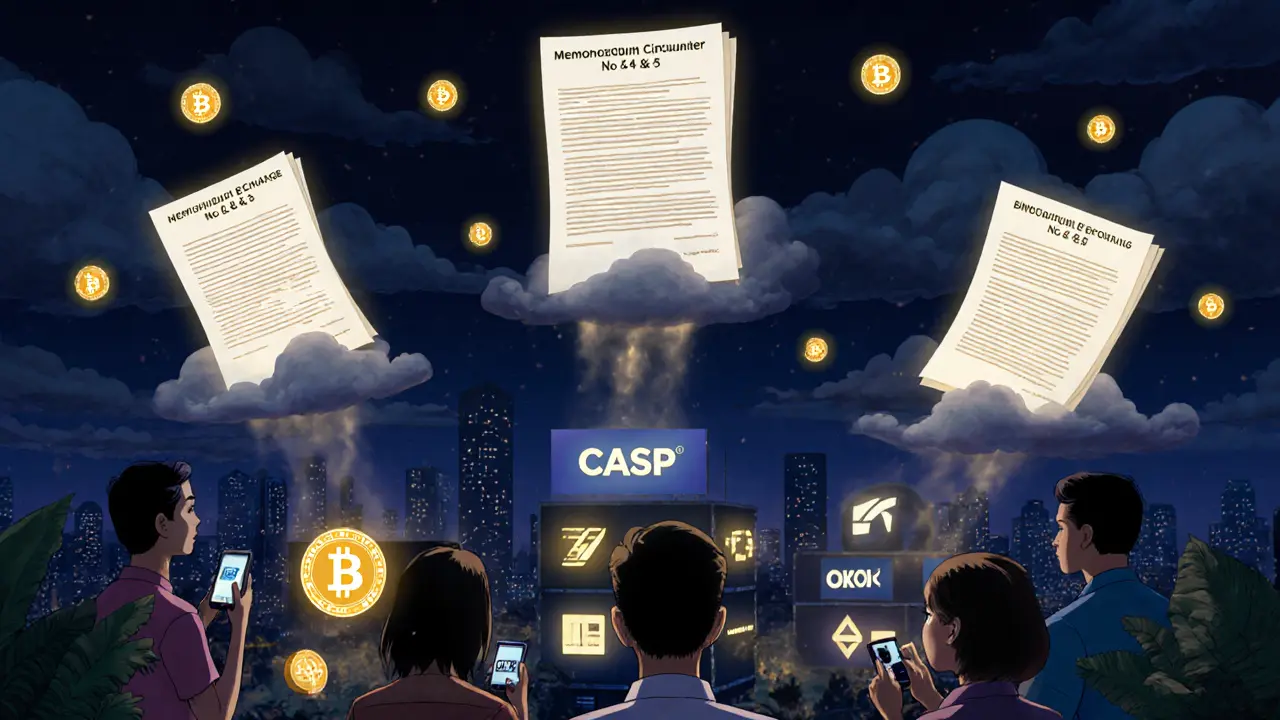The SEC Philippines launched strict crypto enforcement in 2025, requiring all exchanges to register as CASPs or face blocking. Learn what’s banned, who’s affected, and how to stay safe.
CASP Regulations: What They Mean for Crypto Investors and Projects
When you hear CASP regulations, Crypto Asset Service Providers regulations, a set of rules governing companies that handle digital assets like exchanges, wallets, and staking platforms. Also known as crypto service provider rules, these aren’t just paperwork—they directly impact whether a platform can legally operate, how your funds are protected, and even if an airdrop you’re chasing is legit. If you’ve ever wondered why some exchanges disappear overnight or why certain tokens vanish from listing sites, the answer often starts with CASP compliance.
CASP regulations aren’t the same everywhere, but they all share a core goal: stop fraud before it happens. Think of them like seatbelts for crypto. You don’t need them until something goes wrong—then you’re glad they exist. In the EU, under MiCA, a CASP must be licensed, undergo audits, and keep client funds separate. In the U.S., the SEC treats many crypto services as unregistered securities platforms, which can trigger enforcement actions. And in places like Mexico, where crypto tax rules are still evolving, CASP compliance often becomes the first line of defense against legal trouble. Projects like Aperture Finance or Polytrade that offer DeFi services can’t just launch a token and hope for the best—they need to prove they’re following CASP standards or risk being labeled a scam, like Tatmas or AladiEx.
For you as an investor, this isn’t just about avoiding scams. It’s about knowing which platforms actually have skin in the game. A platform that publishes its CASP license number, discloses its audit reports, and clearly states how it handles user funds is far more likely to be around next year than one that doesn’t. That’s why posts here cover everything from exchange reviews to airdrop eligibility: we’re not just listing opportunities—we’re filtering them through the lens of real-world regulation. If a token’s airdrop requires you to send ETH to an unknown contract with no legal backing, it’s not a chance—it’s a red flag. CASP regulations help you spot those.
And it’s not just about safety. Clear rules also mean innovation can thrive. When a project like My Lovely Planet (MLC) builds on Polygon and sticks to transparent, compliant structures, it doesn’t just attract users—it attracts long-term trust. That’s the difference between a meme coin that fades and a token that grows because it plays by the rules. Whether you’re holding FODL, tracking RING, or checking if VLX has a real 2025 airdrop, CASP regulations are the quiet backbone deciding what survives and what gets buried.
Below, you’ll find real-world examples of how these rules shape the crypto world—from the platforms you use to the tokens you chase. No fluff. Just what matters.

